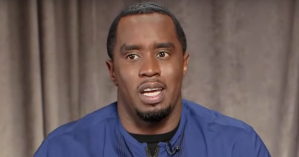The White House is speaking out and condemning Twitter‘s “biased” fact-checking after the social media platform flagged a tweet from President Donald Trump Friday morning. In a statement issued via Twitter just hours after the president’s tweet bore a “public interest notice,” the White House denied allegations that Trump was “glorifying violence,” claiming that he had instead “condemned it,” and blasted Twitter co-founder Jack Dorsey and the platform’s “biased, bad-faith” fact checking.
The President did not glorify violence. He clearly condemned it.@Jack and Twitter’s biased, bad-faith “fact-checkers” have made it clear: Twitter is a publisher, not a platform. https://t.co/lTm3Pxxaqg
— The White House (@WhiteHouse) May 29, 2020
The White House’s strong response followed Twitter’s decision to flag one of the president’s tweets for the first time. In the tweet, which was not removed due to “its relevance to ongoing matters of public importance,” the president had slammed those in Minneapolis protesting the killing of George Floyd by a white police officer as “thugs” and stated that he told Minnesota’s governor that the military is “with him all the way” as the city experiences riots. Trump concluded his tweet by stating that “any difficulty and we will assume control but, when the looting starts, the shooting starts.”
Videos by PopCulture.com
In flagging the post, Twitter said it took action “based on the historical context of the last line, its connection to violence, and the risk it could inspire similar actions today.” The phrase “when the looting starts, the shooting starts” had controversially been used by Walter E. Headley, a Miami police chief in the 1960s, when he announced a “get tough” campaign in 1967. Headley had attracted national attention for using shotguns, dogs, and a “stop-and-frisk” policy to fight crime in the city’s black neighborhoods.
Despite the tweet being flagged, the official White House Twitter account had initially responded by quoting the president’s remarks word for word. That tweet now also bears a notice stating that “this tweet violated the Twitter rules glorifying violence.” Both that tweet and the president’s initial tweet are still visible to the public, though they cannot be responded to and cannot be liked. They both can be retweeted.
The White House has also retweeted a number of tweets from others condemning Twitter’s decision to flag the president’s tweet. It has also questioned the way in which the platform decides which tweets go against its rules. Trump, meanwhile, has continued to rally against social media as a whole, tweeting later Friday morning, “REVOKE 230” in reference to Section 230 of the Communications Decency Act of 1996, which the president is challenging in an executive order he signed Thursday.









